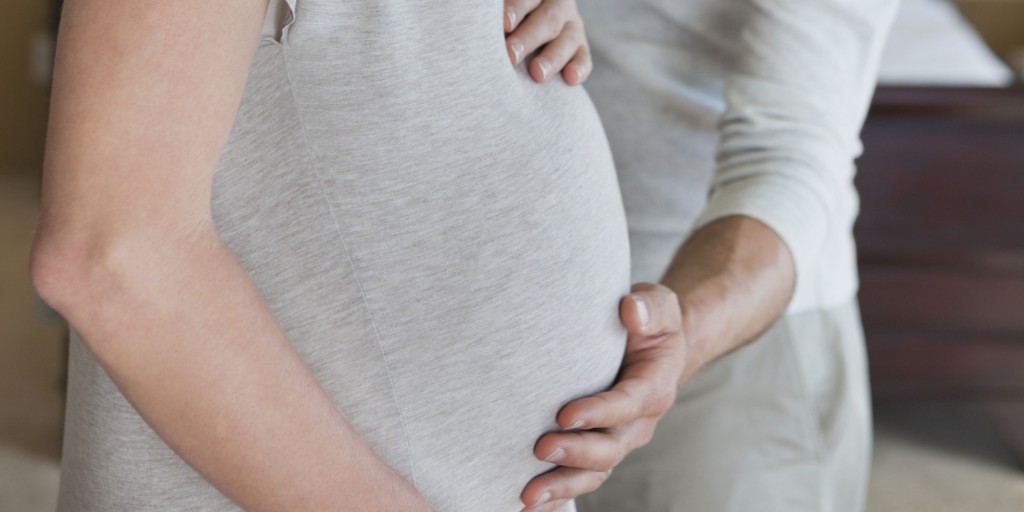
Seeing two pink lines (positive) on the pregnancy test strip and confirming the pregnancy after the doctor’s visit knew no boundaries to their happiness.
But, with each passing week of the pregnancy came not only new excitement but, also doubts whether the changes taking place inside the body were normal or not.
Here’s an insight into Pregnancy.
The entire pregnancy is about 38 weeks plus minus 7 days. If the baby is born before 37 weeks then it is a pre-term delivery whereas if the delivery happens after 42 weeks then it is called a post-term delivery.
Pregnancy is divided into 3 trimesters and each trimester is 3 months.
The first trimester is the most crucial to your baby’s development. During this period, your baby’s body structure and organ systems develop. Most miscarriages and birth defects occur during this period. Inculcating a healthy lifestyle during this period is very important as the foetus depends on its mother for nourishment. During this period have a balanced diet, compromised of proteins, carbohydrates, fats, vitamins and minerals. Make sure you include Folic acid tablets which are essential for normal brain development of the baby.
In this period the expectant mother may not put on weight, rather she may lose some due to morning sickness. She needs 300-350 calories more than her normal requirement during this period. Do not stop eating because you feel nauseated but, try and include foods that you like and that are light on your stomach. Proper diet and exercise ensures foetal health and growth.
Physical changes that normally occur during the First Trimester (1-3 months).
– Nausea (morning sickness) with or without vomiting
– Increased frequency of urination
– Food cravings
– Breast heaviness and darkening of the areola
– Constipation, gases or heartburn
– Occasional headaches
– Fetal heart sounds can be heard during the Sonography by the 5th week of pregnancy.
Emotional changes
– Happiness, euphoria, fear or irritability
– Frequent mood swings
– Confused mental state if the pregnancy was unplanned
The Second trimester
The Second trimester of pregnancy is often called the “golden period” because many of the unpleasant effects of early pregnancy disappear. During the second trimester, you’re likely to experience decreased nausea, better sleep patterns, and increased energy levels. You need to supplement with Iron and Calcium tablets as prescribed by your Doctor.
Physical changes that normally occur during Second Trimester (3-6 months).
– Decreased nausea and vomiting and increased appetite
– Fatigue and giddiness
– Constipation and bloating
– White discharge from the vagina
– Mild swelling of ankles and feet and leg cramps
– Weight gain 4-6 kgs
– Lower abdomen and back discomfort
– Darkening of skin and stretch marks on tummy
Emotional changes
– Joy of looking pregnant due to enlarging tummy
– Excitement about feeling the fetal movements.
It is advisable to get the Anomaly Scan by the 20th week of pregnancy to check if there are any congenital defects in the baby like Down’s syndrome, cleft lip or palate and heart and spine abnormalities.
Along with the Anomaly scan, if the Mother is less than 30 years of age then the Double Marker blood test is recommended and if she is more than 30 years of age then the Triple Marker test is recommended which is used for detecting chromosomal abnormalities that might occur after the conception. 1 in 700 births can have chromosomal abnormalities.
You have now reached your final stretch of pregnancy and are probably very excited and anxious at the same time for the birth of your baby. Some of the physical symptoms you may experience during this period include;
– Large, itchy abdomen and breasts with protruding umbilicus (navel)
– Gentle uterine contractions (Braxton Hicks Contractions) (false labor)
– Leaking of breast milk from the nipples
– Shortness of breath
– Difficulty in sleeping
– Increased constipation and occasionally piles
– Increased in foetal activity (kicking)
– Fatigue and breathing difficulty
Emotional changes
– Anxiety about labour and baby care
– Excitement about shopping for baby and preparing for the baby nursery
– Irritability and impatience about reaching the due date
– “Nesting instinct” – Nesting is the act of preparing your home (cleaning, stockpiling and organizing) for your baby’s arrival
How do you know you are in labour?
- Blood tinged or brownish vaginal discharge
- Diarrhoea
- Fluid gushing or leaking from the vagina means the membranes of the amniotic sac that surrounded and protected the baby have ruptured
- More frequent and intense painful Contractions.
Look out for these signs and know that your baby is on its way. Contact your Doctor and prepare for the delivery. Labour can be absolutely exhausting extending anywhere between 12 to 36 hours but, always remember the end result is the joy of holding your precious baby in your arms and knowing that this is your perfect creation. It’s not the end but the beginning of a beautiful journey.
We hope this article helps you. For further information or guidance, reach out to our certified experts by subscribing to GOQii’s Personalised Health Coaching here.
#BeTheForce




hello madam please give me ur contact no.
Hello Kavita. Sorry I will not be able to share my contact no with you but if u have any doubts/suggestions you can write to me at drholistichealth30@gmail.com